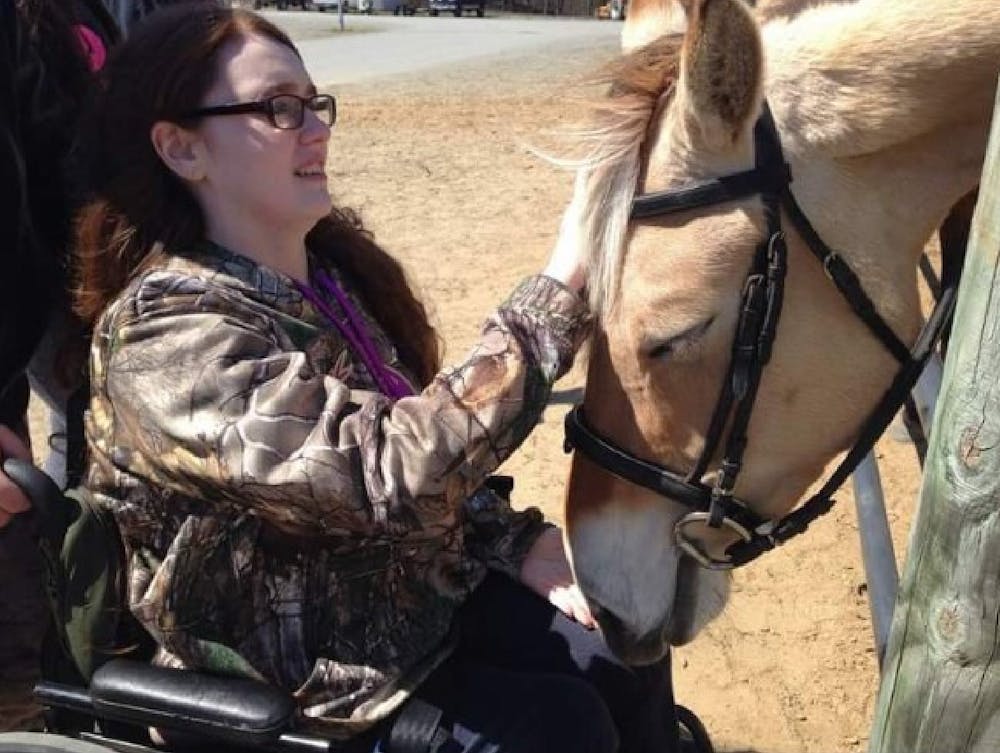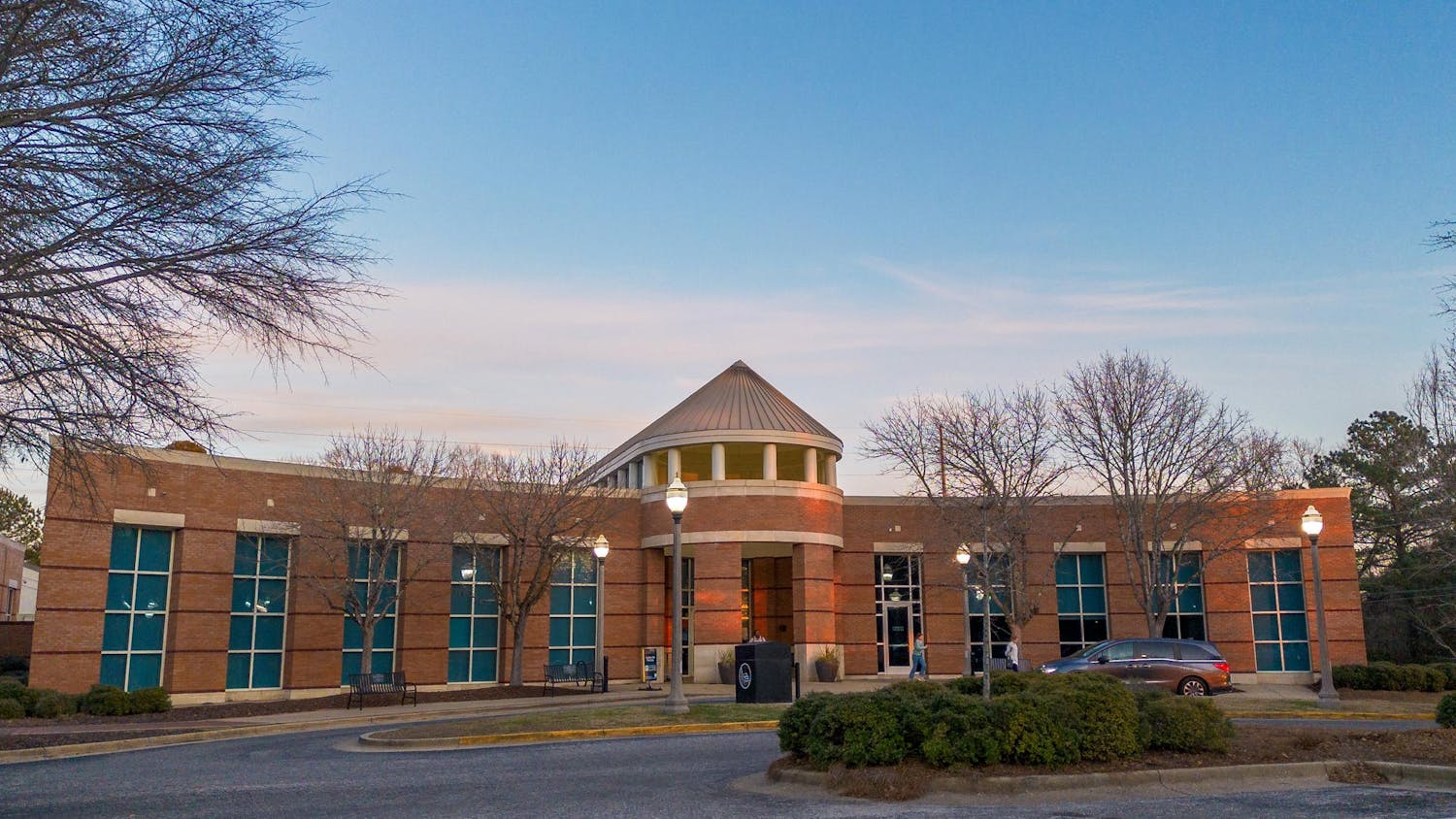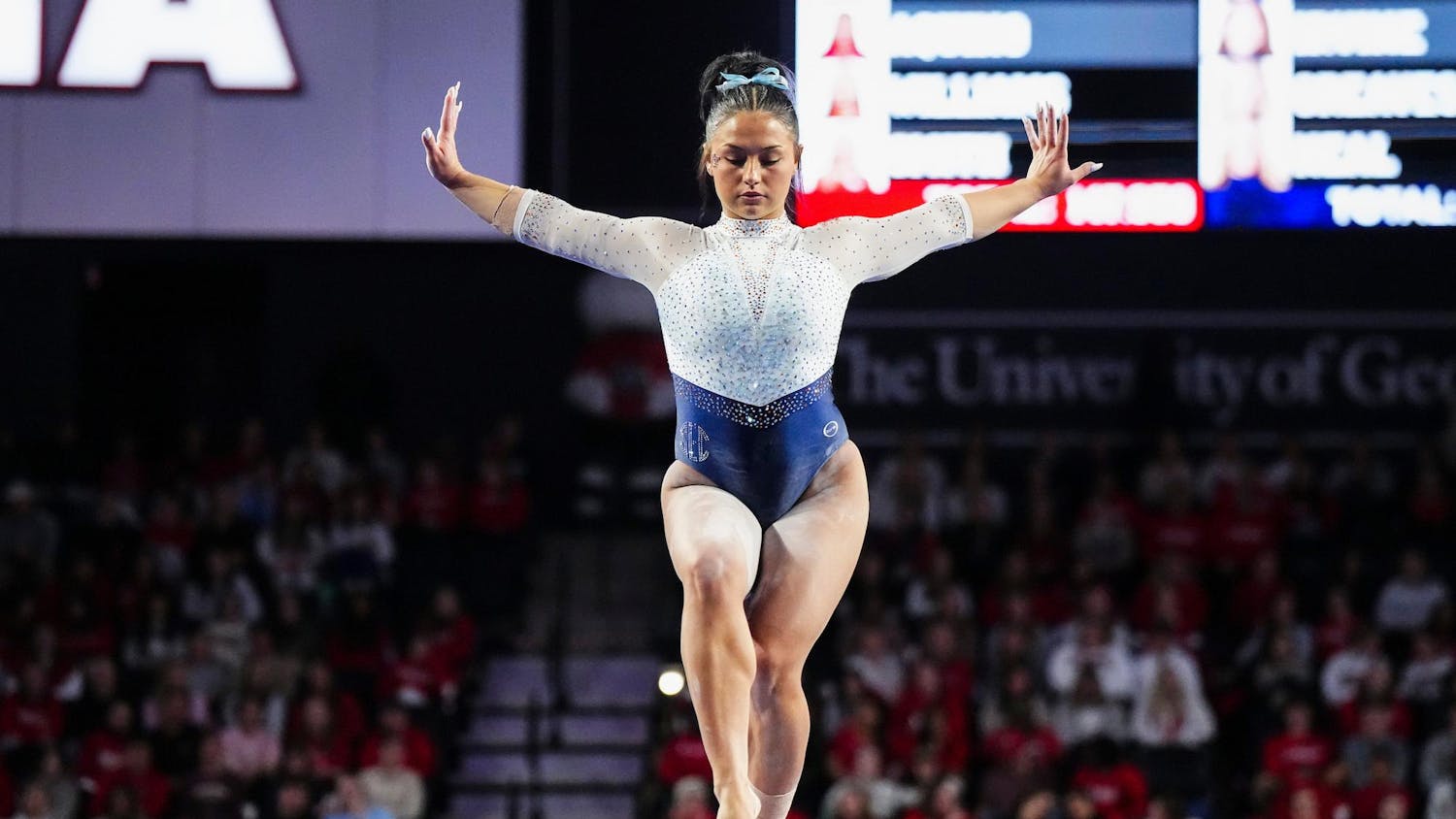When a car accident left her paralyzed from the waist down at eight-years-old, Breanna Thrasher was forced to find new ways to have the same experiences that those without disabilities take for granted.
Thrasher is now a junior in equine science at Auburn.
“Most disabled students actually wind up dropping out of college because of lack of in- structors willing to comply with accommodations [and] because of the overwhelming amount that they have to worry about not only with school but with their health in general,” Thrasher said.
With equine science being a heavily hands-on major, Thrasher explained her experience with navigating these challenges.
“The way that they taught me was everyone else got to go on the fence and be with the horses and be with the instructors and I had to sit outside the fence and watch,“ Thrash-
er said.
Despite having signed waivers, Thrasher is still working toward accommodations to where she will be allowed to work directly with the horses. She has avoided taking any more hands-on classes since this experience.
“I’ve avoided it so long because I’m trying to get help from outside resources to make it where I can participate in these classes [and] I can’t keep being shoved to the side,” Thrasher said. “There’s disabled equestrians every-
where, there are Olympians that are paralyzed and ride horses.”
The lack of accommodations can be felt by disabled students not just in academic environments but in other areas of campus as well. Small sidewalks, steep inclines and unreachable doorknobs are common complaints.
“I’ve run into a few issues on campus. Sidewalk and structure-wise, there’s places where it’s just very hard for wheelchairs. In cases where the fire alarm goes off in the Edge, the elevator shuts off so we have no way to get back downstairs” Thrasher said. “I was in my dorm and the fire alarm went off like four o’clock in the morning. I called 911 twice and firefighters still couldn’t find me.”
Thrasher also spoke about how the dumpsters at South Donahue, where many students with disabilities live, are too high for students in wheelchairs to easily reach. Many times she has to leave her trash outside the door where the facilities staff can help her pick it up.
Part of the Office of Accessibility’s mission statement is to “work collaboratively with students, faculty, staff, and community to reduce these barriers, creating a more usable, accessible campus and learning environment.” Thrasher cites Barclay Bently, director of the Office of Accessibility, as a huge help in creating accommodations for students like her.
“Most of our faculty are very responsive to our office and very willing to work with students and help them out. A lot of it just comes down to communication, explaining kind of what is the need,” Bently said. “But when faculty do have questions, I found that they’ve been very good about explaining their position, and then we can work through that together.”
Bently describes the office as not only a place to benefit students but to help faculty and campus as a whole. They work closely with all parties to create accommodations for everyone, providing extra help for faculty who may have trouble finding ways to create the right accommodations. Bently also describes their goal of working with designers to ensure new buildings on campus are not only accessible but also universally designed to where all students can benefit.
The stairs in Jordan-Hare stadium are notoriously steep and narrow, difficult for even able-bodied fans to climb. In an article by Noah Griffith, many fans expressed their concerns about the stairs. Season ticket holder Lynn Jones described navigating the steps as a “mistake waiting to happen.”
These conditions have created hesitation for students with disabilities on whether attending football games will be safe for them.
“I’ve actually never been to a football game here, I’m too scared to try to go because of accessibility,” Thrasher said.
Thrasher hopes that the Office of Accessibility and the athletics department can work together to create a solution to this. Citing basketball as an example, Thrasher said that students are able to reserve seats at the end of the student section near the elevators. Hopefully, similar actions can be taken with football to allow these students to experience something central to Auburn’s culture and campus.
“I’ve experienced now what it feels like to be treated like you’re not human and that hurts. We all deserve to be on a campus that is welcoming to us and that is easy for us to access,” Thrasher said.
Do you like this story? The Plainsman doesn't accept money from tuition or student fees, and we don't charge a subscription fee. But you can donate to support The Plainsman.
Diane Pham, freshman in industrial engineering, is a news writer at The Plainsman.





